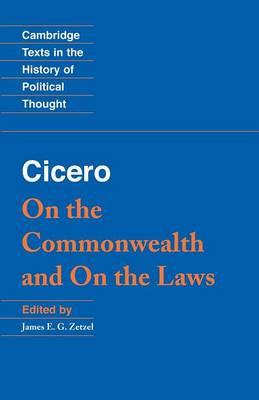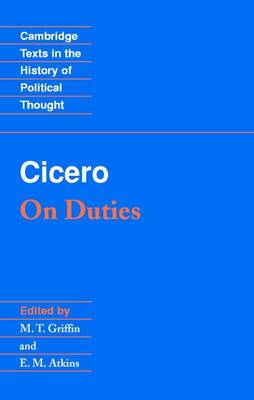Cambridge Texts in the History of Political Thought
2 total works
Cicero's On the Commonwealth and On the Laws were his first and most substantial attempt to adapt Greek theories of political life to the circumstances of the Roman Republic. They represent Cicero's vision of an ideal society, and remain his most important works of political philosophy. On the Commonwealth survives only in part, and On the Laws was never completed. The present volume offers a scholarly reconstruction of the fragments of On the Commonwealth and a masterly translation of both dialogues, prepared by James E. G. Zetzel, Professor of Classics at Columbia University. The texts are supported by a concise introduction, notes, synopsis, biographical notes and bibliography, all designed to assist students in politics, philosophy, ancient history, law and classics.
De Officiis (On Duties) was Cicero's last philosophical work. In it he made use of Greek thought to formulate the political and ethical values of Roman Republican society as he saw them, revealing incidentally a great deal about actual practice. Writing at a time of political crisis after the assassination of Julius Caesar in 44BC, when it was not clear how much of the old Republican order would survive, Cicero here handed on the insights of an elder statesman, adept at political theory and practice, to his son, and through him, to the younger generation in general. De Officiis has often been treated merely as a key to the lost Greek works that Cicero used. This volume aims to render De Officiis, which was such an important influence on later masterpieces of Western political thought, more intelligible by explaining its relation to its own time and place. A wholly new translation is accompanied by a lucid introduction and all the standard features of Cambridge Texts in the History of Political Thought, including a chronology, select bibliography, and notes on the vocabulary and significant individuals mentioned in the text.

